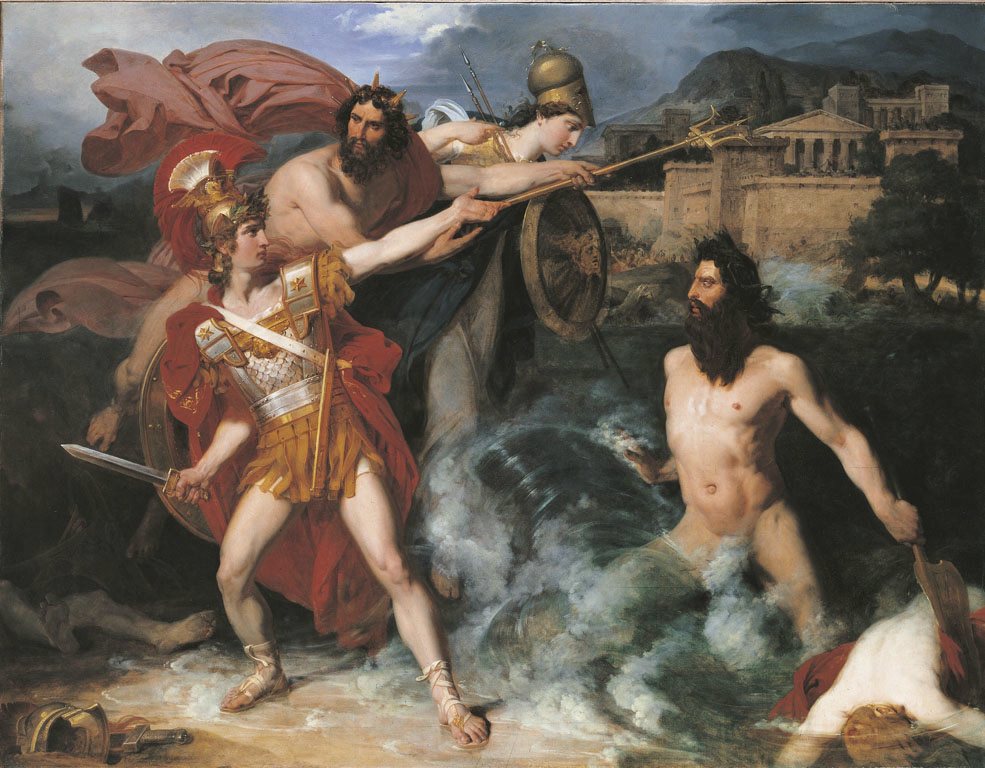Heroes in ancient Greek epic literature, namely Homer’s The Iliad and The Odyssey, are figures that are not only legendary but also like gods. In effect, they are god-men, whose characteristics are best defined within the ideals of the heroic, Homeric society that values these men not only for their high births, but also for their strength, courage, resourcefulness and relentless pursuit of glory. We see these qualities best in Achilles, whose exploits Homer richly and grandly describes.
The fact that his mother is the sea nymph Thetis and his father, Peleus, the king of the Myrmidons, attests to the high birth of Achilles. As well, it also tells us that he is half immortal and half human.
This combination of the divine and the mortal is perfectly reflected in Achilles’ own body, in fact. His entire body is impervious to harm from any weapon – except for his right heel, which is his only vulnerable spot. Thus, he is very nearly entirely a god; but mortality also marks him.
Through most of The Iliad, we read about the exploits of Achilles, and how the Greeks are invincible because of his actions alone. He appears to the Trojans like a great, angry god, whose strength and courage none can rebuff.
In fact, his wrath is a manifestation of his courage and his strength, since he does stand up for what is rightfully his. Even the mighty Hector is incomparable to him – something we learn by the end of The Iliad, wherein Achilles slays Hector in single combat.
Further, we learn that he is resourceful, in that his mother hid him from the society of men, among girls, and even dressed him like a girl. But his heroic qualities were immediately discernible, and Achilles became the best of Greek warriors fighting on the plains of Troy.
The last quality of the Homeric hero is the relentless pursuit of glory. In fact, Achilles does not shy away from it, since he was offered a choice by the gods. He could either live to a ripe old age, and be entirely unknown and never win fame; or he could have a short life and win immortal fame.
Achilles chooses the latter. Although we do not learn in The Iliad about the death of Achilles from Paris’s arrow in his heel, The Odyssey does mention it. Achilles fights not for the good of others, for his own aims.
This “selfishness” is a perfectly acceptable Homeric trait, because heroes must act to a specific standard, which demands that they prove their high birth and god-like stature through valiant deeds.
All of Achilles actions have, therefore, one purpose: the acquisition of glory – for it is glory alone that guarantees immortality to the Homeric hero, who dies knowing that his deeds will not be forgotten and his name will last among the living.
In all this we find something conveniently forgotten in our age – the virtues of manliness, namely, courage, steadfastness, strength of mind, and daring.
These virtues may be recouped in the Greek classics, and in their recovery lies the next renaissance for the western male.
